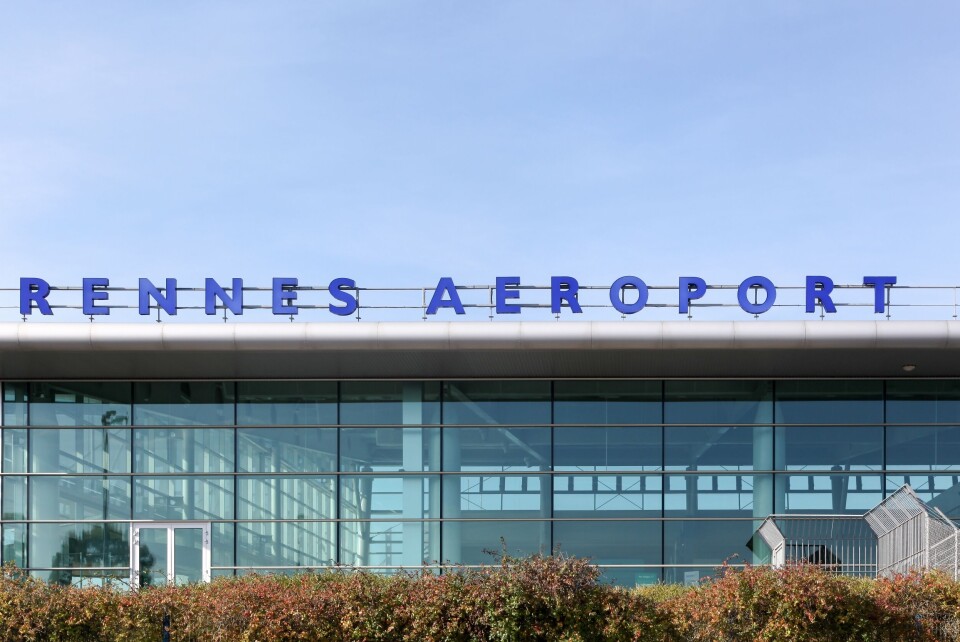-
New social media obligation for British and French visitors to the US to start ‘mid-2026’
There is confusion over the plan, with many expecting a February start date
-
Digital ID to be accepted at French airports this summer
Scheme not open to non-French residents despite plans to include certain card holders by the end of 2025
-
New Paris-Jersey direct flight to launch this summer
Loganair route forms part of Channel Island’s tourism boost plan
French regional airports survive Covid but now face biofuel challenge
No regional airports folded during the pandemic but they must now shoulder Covid loan repayments and costly switch to biofuel

France has around 150 regional airports – the most of any EU country (although only 84 are commercial) – and there is often speculation about how they can all survive long-term.
Many are a vital link for newcomers and can be a main influence on where Britons, for example, settle in France.
All have survived the two-year Covid crisis and are now looking ahead to rebuilding routes as airlines beef up their schedules. French regional airports expect to see 70% of passengers return to the skies this year, compared to pre-Covid 2019.
Thomas Juin, head of the Union des Aéroports Français (UAF), said EU, Mediterranean basin and UK flights are expected to be the quickest to return to higher passenger numbers, with long-haul airports remaining in the doldrums.
‘€600million must be repaid’
Mr Juin said government help had been vital in avoiding closures. It covered 80% of pay as staff stayed at home and gave airports up to €600million to keep safety services and staff.
Some airports took out state-guaranteed loans or bank loans. The €600million must be repaid but Mr Juin said the UAF was against government plans to do so via higher airport taxes as this would put people off travel.
He told The Connexion: “As you might expect, the last two years have been difficult, but now things are looking up and there is a return of confidence.”
He was certain airlines with low-cost models would continue to be the major short and medium-haul transporters on routes between France, Europe and the Mediterranean.
“In fact, when you look at the flights planned by Ryanair, EasyJet and Transavia, they are putting on more flights for the summer than in 2019,” he said.
“In the short term and maybe in the medium term, prices are likely to stay low, but they will rise as small airlines are bought out and everyone, including low-cost ones, must pay more to reach environmental standards with the use of bio-fuel.”
Bio-fuel is four times the price of kerosene
Looking at the airlines’ need to cut carbon emissions – airliners typically burn about a litre of fuel a second – Mr Juin said some short and medium flights might use hydrogen fuel-cell technology but the major improvements would come with mixing bio-fuel, derived mainly from vegetable oils, with fossil fuel kerosene.
“Today, only 1-2%, is bio-fuel, and this can easily rise to 50% without changes to engines. The problem is that it is four times more expensive than kerosene.”
Read more: France to oblige airlines to use green but expensive biofuel
Mr Juin wants the European Commission to hurry things along by imposing a 30% bio- fuel requirement. “Airports will have to adjust to take the new fuel, which might need new equipment and tanks, and the quicker we know what we have to do, the better,” he said.
France was a pioneer in bio-diesel for cars 20 years ago but now has very little home-made bio-fuel as European sector leader Total imports palm oil from Asia for its refineries.
“There is an opportunity to provide income for farmers, and work for people in refineries to turn vegetable oil into a form aircraft can use, and I hope France takes it,” he said.
2050 EU deadline for zero carbon flights
The government’s post-Covid economic relaunch does not include increased aviation bio- fuel output but the transport ministry has said it is a research and development priority.
European ministers have set a 2050 deadline for zero carbon flights and the French transport minister saw it opening “a new chapter in aviation history”.
The government has also backed a switch to rail, rather than internal flights.
Related articles
Easyjet criticised for using incorrect bag sizers in French airports
Aerovillages project in France: Housing estate with planes in garage
Investigation into serious landing error on plane at Nantes airport
























